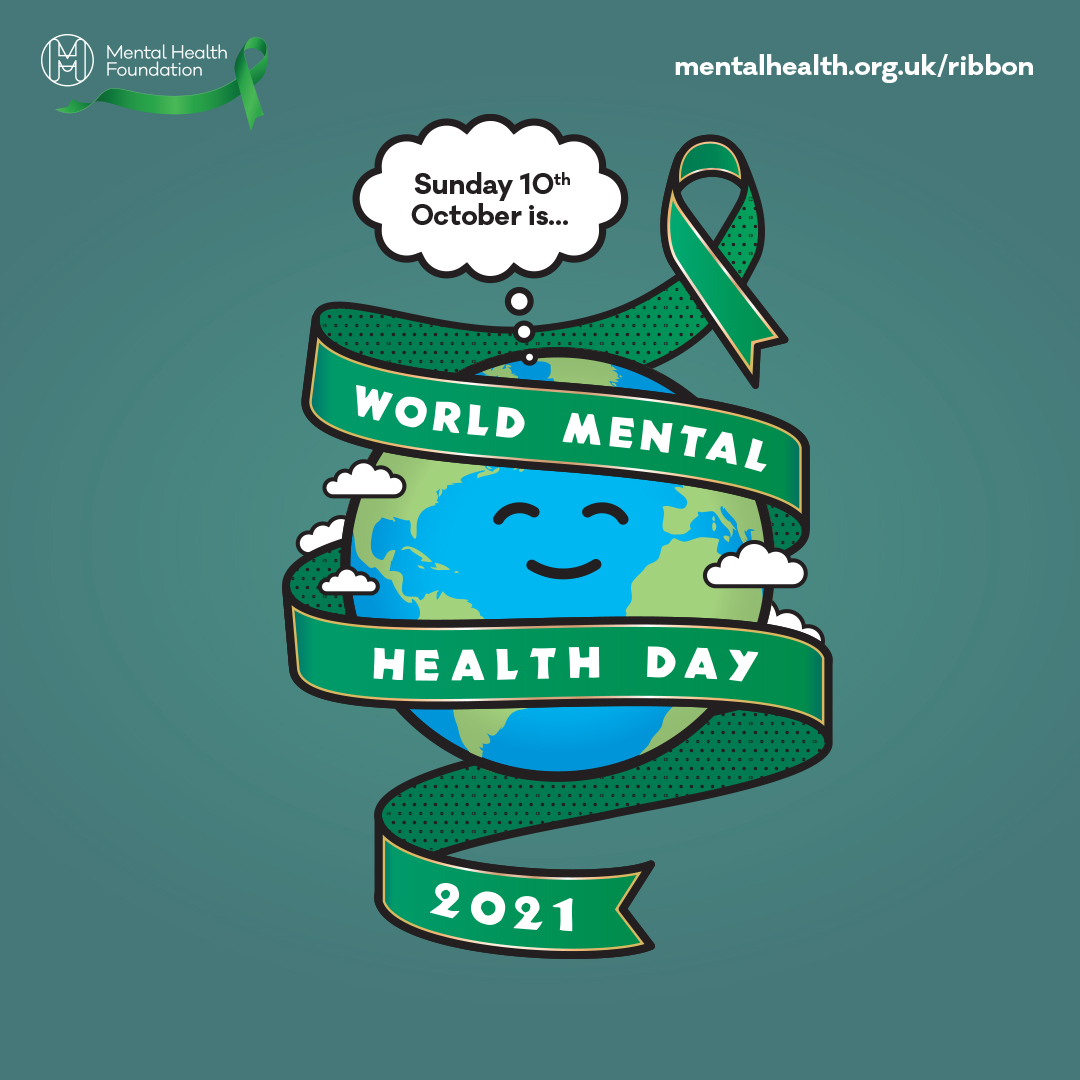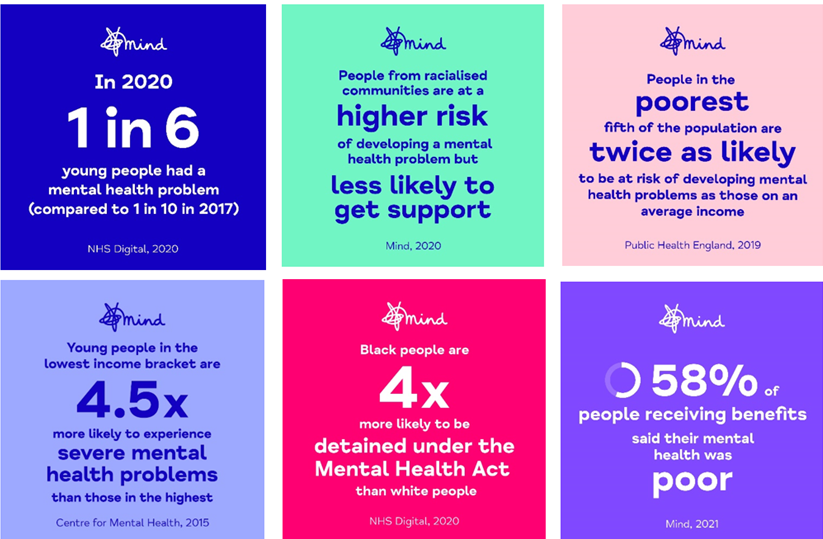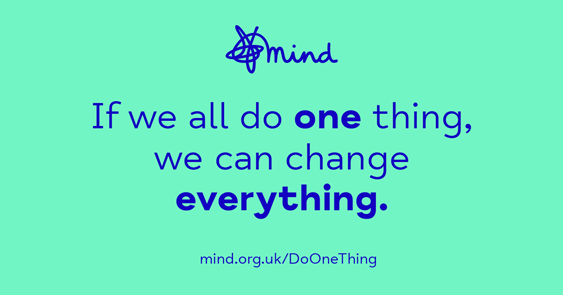This year World Mental Health Day falls on Sunday 10 October

Here are some top tips of looking after your own wellbeing:
- Get creative – try drawing, painting, photography or creative, writing, singing, or playing and instrument, dance or drama or making something out of old materials … anything using your imagination and skill.
- Learn something new – learn how to cook or bake something new, go to a local library, museum or gallery or try a new sport or language.
- Be active – something small, like a short walk or talking the stairs instead of the lift, going for a walk, swim, run, or bike ride or a group activity, like tennis, rounders, or football.
- Eat healthily – eating a balanced diet (especially if you’re vegetarian or vegan), but also making sure you eat enough to give your body energy, keeping hydrated and reducing added sugar and caffeine in your food and drink.
- Get enough sleep – go to bed at a time that allows you enough sleep, cut down on screen time before bed, use a blue light filter or night mode on your screen in the evening to help you feel sleepy or try reading a book before bed, or listening to relaxing music.
- Help others – ask a friend how they are, and truly listen to them. If your friend does open up, encourage them to speak to others too!
- Do things you enjoy – try a new hobby such as a playing a sport, baking or cooking, spend time with friends or family or try reading or watching films.
- Connect with others – organise something nice with your friends or family, visit a friend you haven’t seen in a while or try meeting new people by joining a club.
- Do things to help you relax – spend time in nature, see friends, read, listen to music or watch a film, have a bath or shower or try relaxation exercises, meditation, or religious prayer.
- Ask for help if you need it – it’s normal to want to try and deal with things on your own. But opening up to friends, family or other people you trust can help you feel supported. Try and remember it’s always ok to ask for help.
This year’s theme is ‘Mental health in an unequal world’ and is all around living in an unequal world and discussing inequalities within mental health services and those within our society.
Did you know?
- Access to mental health services remains unequal, with between 75% to 95% of people with mental disorders in low- and middle-income countries unable to access mental health services at all, and access in high income countries is not much better.
- Many people with a mental illness do not receive the treatment that they are entitled to and deserve and together with their families and carers continue to experience stigma and discrimination.
- People who experience physical illness also often experience psychological distress and mental health difficulties.
The stigma and discrimination experienced by people who experience mental ill health not only affects that person’s physical and mental health, but stigma also affects their educational opportunities, current and future earning, and job prospects, which therefore affects their families and loved ones. This inequality needs to be addressed because it should not be allowed to continue.

Everybody should have the right to access mental health support.
What can you do?

This World Mental Health Day, do one thing and add your voice.
Speak out against mental health inequality, because if we all do one thing, we can change everything.
SPEAK OUT, SPREAD THE WORD AND MAKE THAT CHANGE HAPPEN
All of us deserve to receive the support and respect we require with our mental health – whilst not being subjected to discrimination through race, gender, age, disability, sexual orientation, and/or class.
World Mental Health Day provides an opportunity to empower people to look after their own mental health and provide support to others.

If you would like to talk to someone about your mental health or emotional wellbeing, you can contact your school nurses through Chat Health.
If you liked this blog or want further information, please visit our Emotional Health page.
Written by Danielle Coomber (Specialist Community Public Health Nurse – School Nursing)


Recent Comments